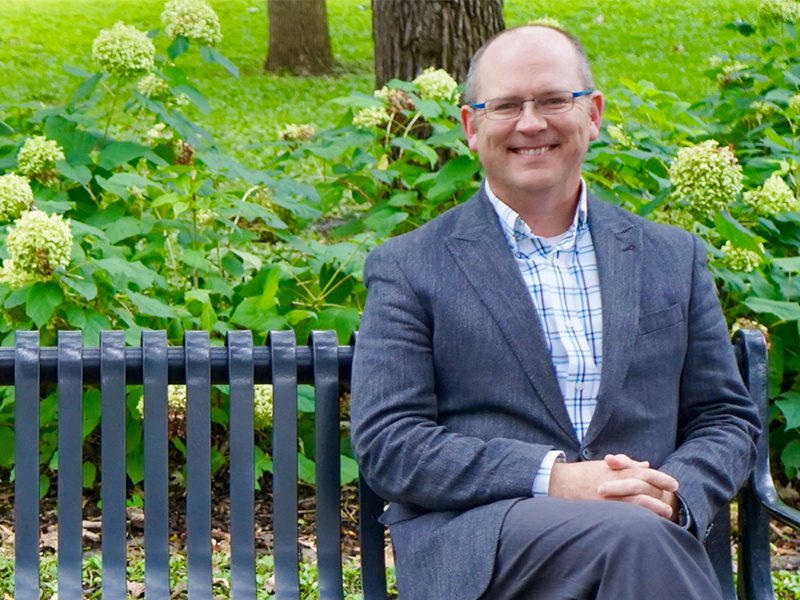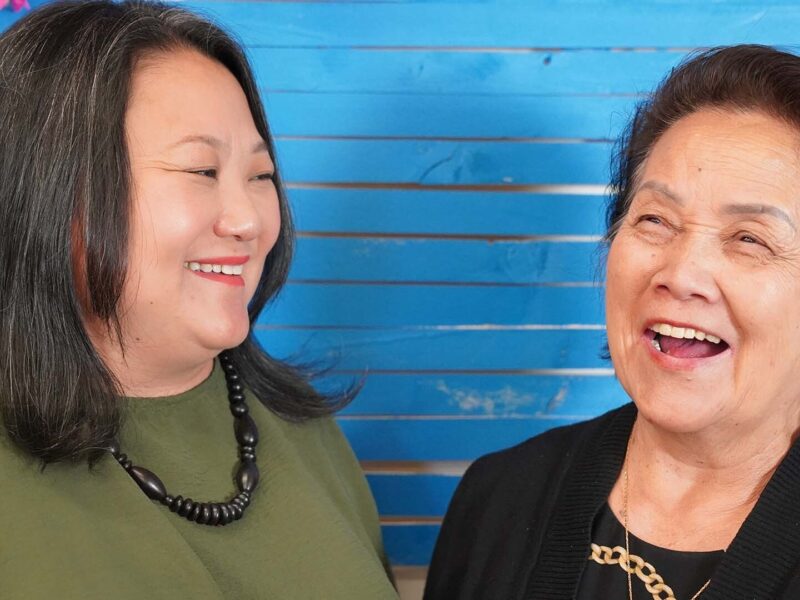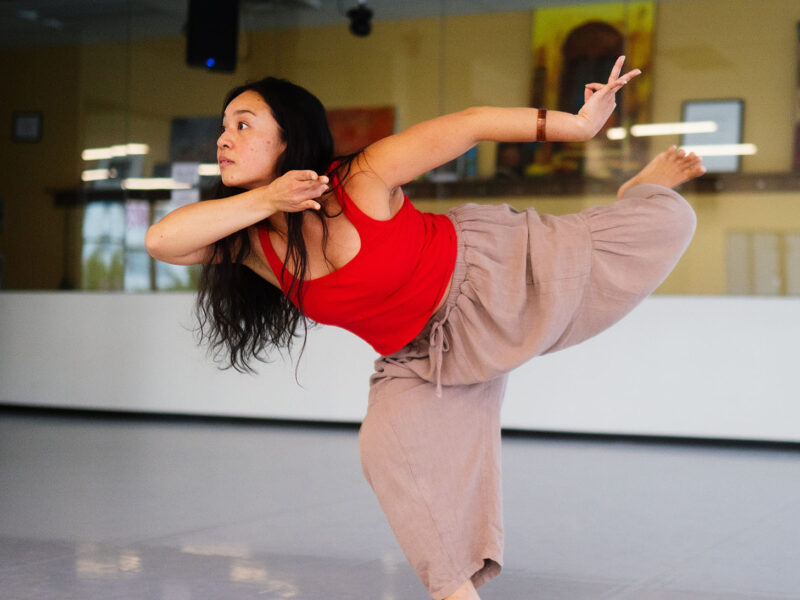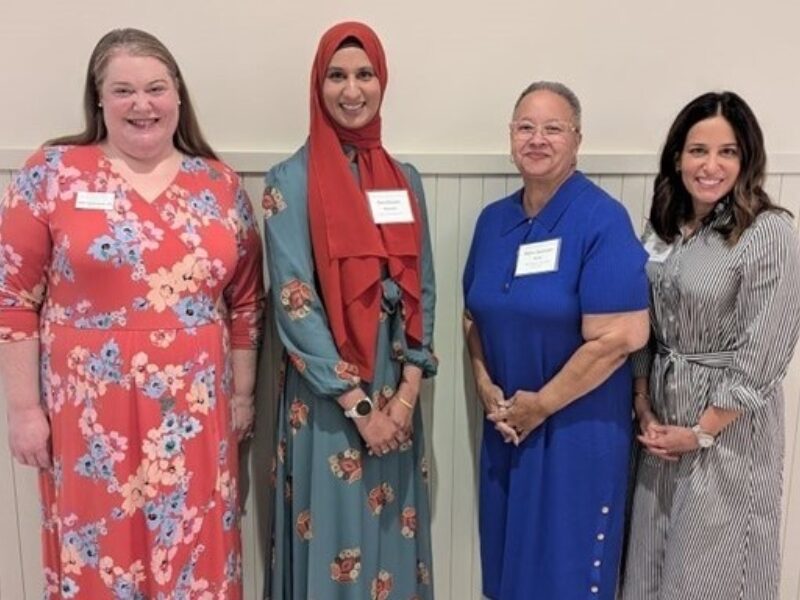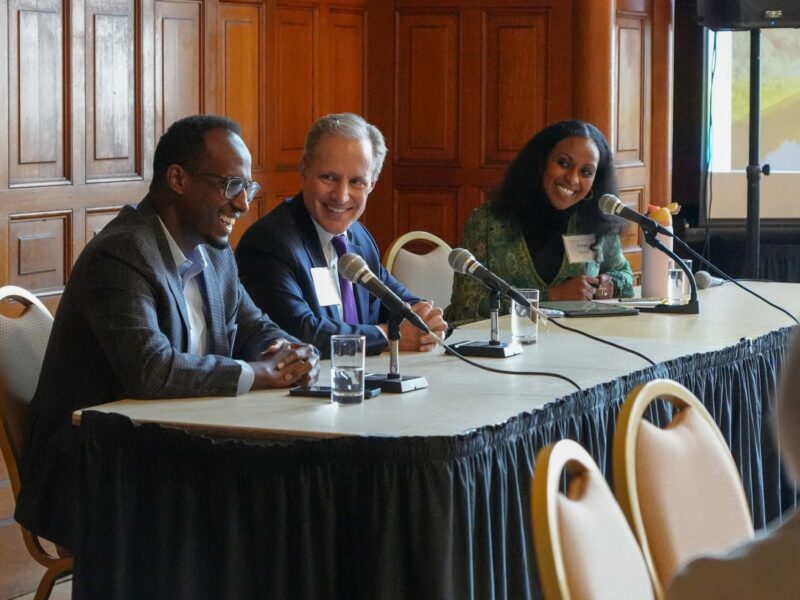Here are a few ways you can shape your FUTURE giving plans.
Are you considering how to best make the biggest impact in your community? The Saint Paul & Minnesota Foundation is a vibrant giving community of donors that give in inspiring ways.
Below, we have compiled stories that showcase how some donors have chosen to make an impact, as well as a few tips and tools to help you develop your giving plans.

Family Giving Traditions
For some people, giving is a family tradition.
Christine Noonan’s family started their giving journey with the Foundation when her parents George and Judy opened a donor advised fund (DAF). As part of their charitable giving plan, the Japanese American couple chose to include their nine grandchildren, allowing each grandchild to choose a nonprofit to visit and support. This practice inspired Christine and her husband to open a DAF of their own.
“The idea of setting aside a fund at the Foundation is a way for us to be thoughtful, more intentional and more planful in our giving,” said Christine. “Just the value of that has meant a lot to our family. To pass that on after my husband and I are gone to our children and then they know that money is there for them to be able to give to things that are important to them is really beneficial.”
Giving Close to Home
In the case of donor Gyles Randall, it was a matter of supporting his beloved community in Waseca. To show their appreciation, the long-time resident and his wife gifted the Waseca Area Foundation (WAF) with funding to support capacity building and operations, so that it could focus its efforts on grantmaking and programming.
WAF was a member of the Foundation’s Community Affiliates Program for more than 30 years before recently becoming an independent nonprofit community foundation. The Foundation invests in communities across the state alongside our donors, through the Community Affiliates program as well as other initiatives.


Giving Crops
One farmer gave in a unique way — donating crops instead of writing a check. When he donated gifts of grain such as corn and soybean, he was able to support multiple organizations through his DAF, including his church and other causes he cares about.
“I’ve always found this to be a much simpler process,” said John. “I just call Aurea [his philanthropic advisor] and say ‘I’ve got some grain at the elevator,’ and then the Foundation staff calls the elevator to make the sale and cut the check.”
Crops are one of the many non-cash assets the Foundation can accept. It’s easy to turn goods into gifts — learn more.
Leveraging Real Estate
Lisa and Jerry O’Brien donated a condominium, once occupied by Lisa’s mother, to support their favorite organizations. By gifting real estate to the Foundation, the couple was able to minimize their capital gains taxes and receive a tax advantage for the charitable contribution to their DAF.
“Rather than giving all of the funds to one institution, we wound up donating funds to the Greater Minneapolis Crisis Nursery, University of Minnesota's Weisman Art Museum, the University of Chicago and various Catholic charities,” said Jerry. “I went to the University of Chicago, so we sponsor an MBA fellowship there, and Lisa went to the University of Minnesota, so we also sponsor a curatorial fellowship at the Weisman Museum.”
Real estate can be used to create a significant charitable legacy. It is one of the most beneficial charitable gifts for both the donor and the nonprofit. Download our guide to donating real estate.

Giving Tips & Tools
Giving doesn't have to be complicated. Based on your charitable giving goals, our team will work with you and your professional advisors to create a plan that best aligns with your giving vision. Here are some places to get started with your year-end planning.
These are just a few examples of ways to give. To learn more, please contact your philanthropic advisor, call 651.224.5463 or email philanthropy@spmcf.org.
The Saint Paul & Minnesota Foundation does not provide tax, legal or accounting advice. Please consult your own tax, legal and accounting advisors regarding your individual situation before engaging in any transaction.



